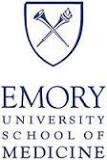Allogeneic Human Mesenchymal Stem Cells for Alzheimer's Disease
| Status: | Recruiting |
|---|---|
| Conditions: | Alzheimer Disease, Neurology |
| Therapuetic Areas: | Neurology |
| Healthy: | No |
| Age Range: | 55 - 80 |
| Updated: | 7/30/2016 |
| Start Date: | June 2016 |
| End Date: | June 2018 |
| Contact: | Becky Byram, M.Ed. |
| Email: | rbyram@emory.edu |
| Phone: | 404-712-0195 |
A Phase IIa Study of Allogeneic Human Mesenchymal Stem Cells in Subjects With Mild to Moderate Dementia Due to Alzheimer's Disease
STUDY OBJECTIVES
Primary:
To assess the safety and tolerability of ischemia-tolerant allogeneic human mesenchymal stem
cells (hMSCs) manufactured by Stemedica versus placebo administered intravenously to
subjects with mild to moderate dementia due to Alzheimer's disease.
Secondary:
To assess the preliminary efficacy of hMSCs versus placebo in subjects with
Alzheimer's-related dementia, as evidenced by neurologic, functional, and psychiatric
endpoints.
Primary:
To assess the safety and tolerability of ischemia-tolerant allogeneic human mesenchymal stem
cells (hMSCs) manufactured by Stemedica versus placebo administered intravenously to
subjects with mild to moderate dementia due to Alzheimer's disease.
Secondary:
To assess the preliminary efficacy of hMSCs versus placebo in subjects with
Alzheimer's-related dementia, as evidenced by neurologic, functional, and psychiatric
endpoints.
This is a Phase IIa multi-center, randomized, single-blind, placebo-controlled, crossover
study in subjects with mild to moderate dementia due to Alzheimer's disease. Only the
subject and their caregiver will be blinded to the study treatment. The study will consist
of two cohorts of subjects (20 subjects per cohort), randomized in a 1:1 allocation to
receive active study drug or placebo. Cohort 1 will receive a single intravenous dose of
hMSCs of 1.5 million cells per kilogram body weight on their Study Day 1, and Cohort 2 will
receive equal volume of Lactated Ringer's Solution on their Study Day 1. At the six-month
time point for each subject after their first infusion, Cohort 1 will receive a single
intravenous dose of Lactated Ringer's Solution and Cohort 2 will receive a single
intravenous dose of hMSCs at 1.5 million cells per kilogram of the subject's body weight.
Approximately 40 subjects will be enrolled in this study. An independent Data and Safety
Monitoring Board will conduct periodic safety reviews.
study in subjects with mild to moderate dementia due to Alzheimer's disease. Only the
subject and their caregiver will be blinded to the study treatment. The study will consist
of two cohorts of subjects (20 subjects per cohort), randomized in a 1:1 allocation to
receive active study drug or placebo. Cohort 1 will receive a single intravenous dose of
hMSCs of 1.5 million cells per kilogram body weight on their Study Day 1, and Cohort 2 will
receive equal volume of Lactated Ringer's Solution on their Study Day 1. At the six-month
time point for each subject after their first infusion, Cohort 1 will receive a single
intravenous dose of Lactated Ringer's Solution and Cohort 2 will receive a single
intravenous dose of hMSCs at 1.5 million cells per kilogram of the subject's body weight.
Approximately 40 subjects will be enrolled in this study. An independent Data and Safety
Monitoring Board will conduct periodic safety reviews.
Inclusion Criteria:
1. Males or females between 55-80 years of age.
2. Diagnosed with mild to moderate dementia for at least 3 months prior to enrollment,
based on the National Institute of Neurological and Communicative
3. Disorders and Stroke and the Alzheimer's Disease and Related Disorders Association
(NINDS-ADRDA) Alzheimer's criteria.
4. MMSE between 12-24 (inclusive) at time of enrollment.
5. Amyloid-positive florbetapir PET scan.
Exclusion Criteria:
1. Prior treatment with stem cells.
2. History of intracranial, subdural, or subarachnoid hemorrhage.
3. Subjects with baseline brain MRI showing more than four (4) cerebral microhemorrhages
(regardless of their anatomical location or diagnostic characterization as "possible"
or "definite"), and/or one (1) or more areas of superficial siderosis, and/or
evidence of a prior macrohemorrhage. MRI must include fluid-attenuation inversion
recovery (FLAIR) and T2*-weighted gradient-recalled-echo (GRE) sequences.
4. History of cancer within the past 5 years, with the exception of localized basal or
squamous cell carcinoma.
5. History of seizure disorder.
6. Diagnosis of cerebral autosomal dominant arteriopathy with subcortical infarcts and
leukoencephalopathy (CADASIL).
7. History of cerebral neoplasm.
8. Myocardial infarction within six months of enrollment.
We found this trial at
2
sites
Click here to add this to my saved trials
1648 Pierce Dr NE
Atlanta, Georgia 30322
Atlanta, Georgia 30322
(404) 727-5640

Phone: 404-712-0195
Emory University School of Medicine Emory University School of Medicine has 2,359 full- and part-time...
Click here to add this to my saved trials